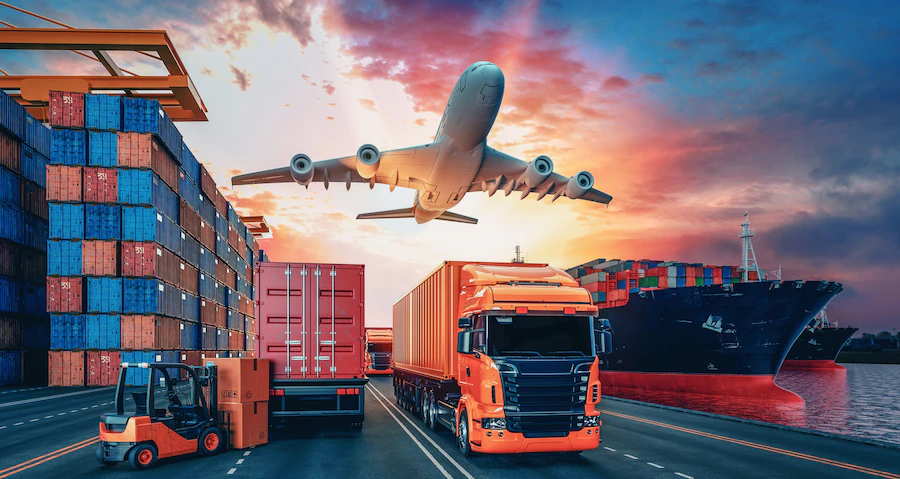Tackle The Common Challenges In Export Business
4 Mins Read
Published on: 08 November 2022
Last Updated on: 01 June 2023

toc impalement
International trade is not as simple as it seems. There are hundreds of things that an exporter needs to consider and navigate through the process.
Had it been this simple, there would be many more exporters in the business than existing. The export industry trades manufactured goods & commodities and intangible goods such as tourism and telecommunication.
However, international trade is not easy. There are turbulences and missteps that every exporter must avoid to ensure a glitch-free trade experience. So, what are these factors and challenges that every export business owner has to tackle?
Don’t worry! We are here to assist you with that!
Here Are Five Common Challenges In Export Business
This article mentions the main challenges in the export business and how you can tackle them to run a smooth process. Read on!
1. Incompatible relationship with Customs Officials

Each country has a set of rules and regulations for international trading with respect to every kind of product. As an exporter, you must comply with your origin country’s laws and all the other countries your product goes through. Your relationship with customs officials becomes lousy when you think you know more than them.
No, you never know more than them; they have the rule booklet set in their brains, so you might as well contact online customs brokers.
They are experts in simplifying international trade by assuring that your business follows the trade rules under the law. Hiring a third-party service that gives accurate time information on what is happening and what changes are required to prevent fines and compliances reduces the load on your shoulder. Moreover, the customs officials stay happy.
2. Failure to understand Localization Laws
Localization laws are the ones that include rules regarding the packaging, marking, and language labeling of a product. Each country has different product regulations; while some may allow liquids, others won’t.
Most exporters fail to understand the laws; thus, they have to pay hefty fines as a penalty. So, if you are doing everything by yourself, it is suggested to understand the laws correctly.
You can talk to the transporter and customers to compare their notes for better understanding. In addition, while many countries accept English on product labeling, others don’t and require you to paste the information in their local language.
3. Unfamiliarity with Incoterms and their effect on sales

Incoterms are internationally recognized guidelines to clarify the responsibility of transactions on the seller and the buyer. The international trade market runs a severe risk of transaction fraud. Therefore, these terms were made to ease the trade. They are mentioned on the invoice for clarity.
You must understand your responsibility as an exporter to learn the difference between different Incoterms and their meaning. The unfamiliarity leads to overpayment or underpayment to suppliers; consequently, the export business gets stuck in customs compliance.
4. Ignoring the legitimacy of customers and suppliers
One of the major mistakes and challenges that exporting businesses have to tackle is fraud between customers and manufacturers. The odds of getting heated, receiving lousy quality products, or having issues receiving customer payments are high when you do not conduct comprehensive research on your end.
When dealing with manufacturers, you must look for them on global platforms such as Global Sources to understand their working and reputation in the industry.
Similarly, for customers, you might check the search engine and contact government officials to know their legitimacy. In addition, always ask for references, whether for customers or suppliers and take suggestions on who to work with in the specific industry. Even when you are willing to take a risk, calculate the consequences beforehand to prevent significant losses.
5. Issues in Managing Supply Chain

Supply chain management is a severe issue in the import/export business. The business owners must ensure that goods are delivered from point A to Point B using the vast network of stakeholders.
It includes sourcing, scheduling, distributing, warehousing, and shipping. The supply chain is extended; thus, people find it hard to manage it alone. Therefore, some companies use services from dedicated import/export professionals; others outsource the task to third-party logistics companies.
As the supply chain is highly complex, it is better to analyze the market and mitigate the pitfalls in supply before they become losses for you. Therefore, you should speak with transportation exports, have your warehousing sorted, and understand the requirements for fast and durable shipping.
All of this will require you to work with a professional importer of record who is aware of the supply chain system, international trade regulations.
Bottom Line
We hope you can master these pitfalls to run a successful import/export business. You can find third-party service providers to sort out most of your challenges.
However, as the owner, you will have to take the lead and find the best investment services to grow your international trade business.
Read Also:


















Comments Are Closed For This Article